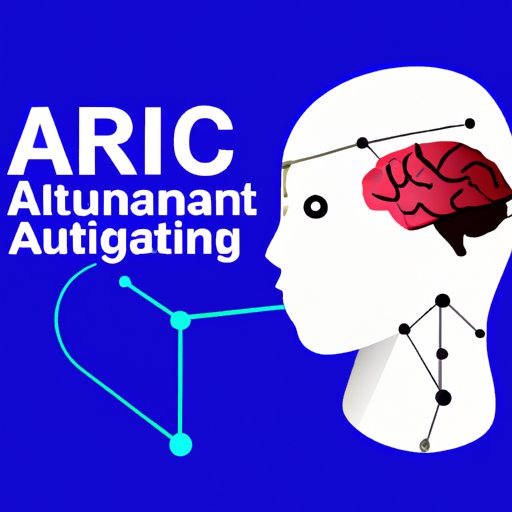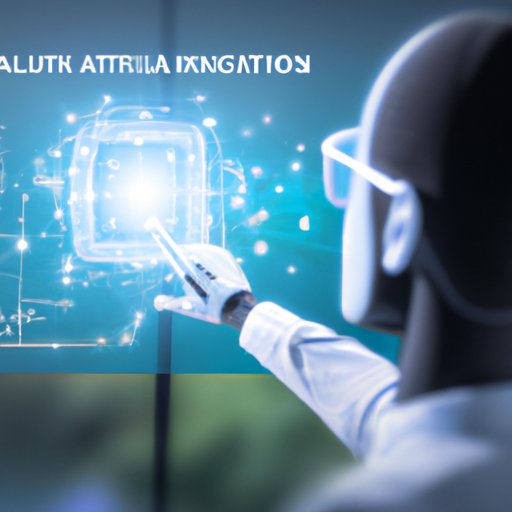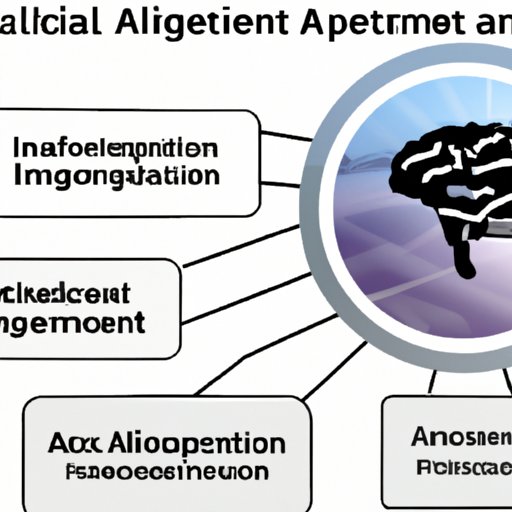Introduction
Artificial Intelligence (AI) is a term that has become increasingly common in recent years. AI refers to the development of computer systems that can “think” for themselves and make decisions based on available data. An AI program is a type of computer software designed to mimic certain aspects of human intelligence. AI programs have been around for decades and are becoming more sophisticated as technology advances.

Definition of an AI Program
An AI program is a computer program that performs tasks related to artificial intelligence. These tasks include recognizing patterns, learning from experience, solving problems and making decisions. AI programs are designed to understand complex data sets and use this information to make predictions or recommendations. They are used in a variety of industries, including healthcare, finance and manufacturing.
Overview of Benefits of AI Programs
AI programs offer numerous benefits over traditional computer programs. For example, they are able to process large amounts of data quickly and accurately. This can help businesses make better decisions faster than ever before. AI programs can also be used to automate tedious tasks, such as customer service, which can free up time for employees to focus on more important tasks.
In addition, AI programs are capable of recognizing patterns and trends that may not be immediately obvious to humans. This can help businesses identify potential opportunities or risks before they become a problem. Finally, AI programs can help organizations improve efficiency and reduce costs by automating processes that would otherwise require manual labor.

Exploring How AI Programs Work
AI programs are designed to emulate the way humans think. To do this, they use algorithms and mathematical models to analyze data and come up with conclusions. The algorithms used by AI programs are based on a set of rules that define how they should behave when presented with certain inputs. As the AI program collects more data, it becomes smarter and better able to recognize patterns and make decisions.
Examining Different Types of AI Programs
There are several different types of AI programs. The most common types are machine learning and deep learning. Machine learning algorithms use input data to learn and adjust their behavior over time. Deep learning algorithms use layers of neurons to process data and make decisions. Other types of AI programs include natural language processing, computer vision, and robotics.
Comparing AI Programs to Human Intelligence
AI programs are capable of performing many tasks that are difficult for humans. For instance, they can process large amounts of data quickly and accurately. Additionally, they are able to recognize patterns and trends that may not be immediately obvious to humans. However, AI programs still lack the creativity and intuition of humans. They are also limited by their programming and cannot adapt to changing conditions like humans can.

Understanding the Limitations of AI Programs
AI programs are not perfect and have their own set of limitations. First, AI programs are only as good as the data they are given. If the data is incomplete or incorrect, the AI program will not be able to make accurate predictions or recommendations. Additionally, AI programs can be prone to bias if the data used to train them is biased. Finally, AI programs are limited in their ability to interpret context and emotions, which can lead to errors in decision-making.
Evaluating the Impact of AI Programs on Society
The use of AI programs has both positive and negative implications for society. On one hand, AI programs can help businesses make better decisions faster, automate tedious tasks and improve efficiency. On the other hand, there is fear that AI programs could replace human jobs and lead to greater inequality in society. In addition, some worry that AI programs could be used to violate privacy rights or manipulate people.
Conclusion
AI programs are sophisticated computer programs designed to mimic certain aspects of human intelligence. They offer numerous benefits over traditional computer programs, including the ability to process large amounts of data quickly and accurately. AI programs are also limited by their programming and can be prone to bias. The use of AI programs has both positive and negative implications for society, and it is important to consider both sides when evaluating their impact.

Summary of Benefits of AI Programs
AI programs offer numerous benefits over traditional computer programs, including the ability to process large amounts of data quickly and accurately, recognize patterns and trends, automate tedious tasks, and improve efficiency. However, there are also potential drawbacks, such as replacing human jobs and violating privacy rights.
Final Thoughts on Limitations and Impact of AI Programs
AI programs have the potential to revolutionize the way we live and work. They offer numerous benefits, but also have their own set of limitations. It is important to evaluate the potential impacts of AI programs on society before implementing them, and to ensure that any potential risks are addressed.
(Note: Is this article not meeting your expectations? Do you have knowledge or insights to share? Unlock new opportunities and expand your reach by joining our authors team. Click Registration to join us and share your expertise with our readers.)
